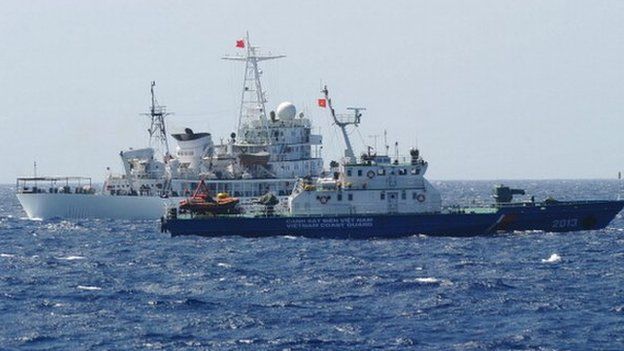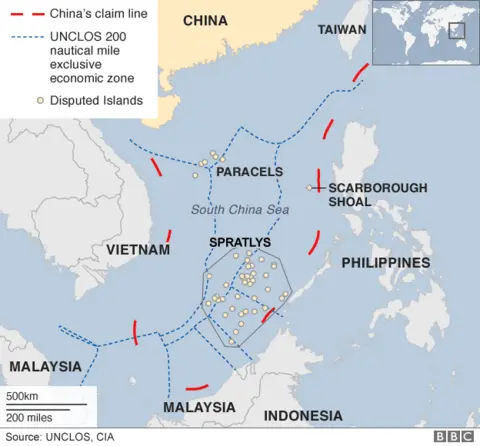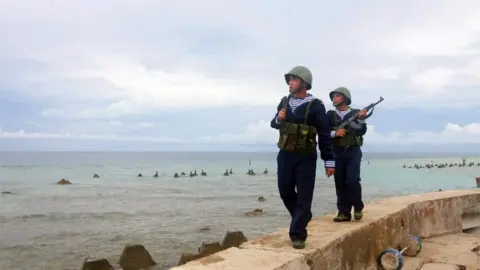Vietnam drills for oil in South China Sea
 AFP
AFPVietnam has begun drilling for oil in an area of the resource-rich South China Sea also claimed by China.
An oil industry consultant told the BBC that a drilling ship on contract to international firm Talisman-Vietnam was working off Vietnam's south-east coast.
This appears to be why a senior Chinese general cut short an official visit to Vietnam last month.
China claims almost all of the South China Sea, including reefs and islands also contested by other nations.
According to Ian Cross, of Singapore-based Moyes & Co, the drillship Deepsea Metro I, began to drill in an area of sea about 400km (250 miles) off the Vietnamese coast on 21 June.
It is likely that the news was kept secret because of its extreme sensitivity.

Other oil industry sources have told the BBC that Talisman-Vietnam was denied permission to drill over the past three years to avoid upsetting China.
It would appear that by taking such a bold move, the leadership in Hanoi is less concerned about such risks now.
The piece of seabed in question is known as Block 136-03 by Vietnam, but China calls it Wan-an Bei 21 and has leased out the same area to a different company. In 2014 the Chinese rights were bought by a Hong Kong-based company called Brightoil.
Two of the directors of Brightoil are senior members of the Chinese Communist Party.
Talisman-Vietnam was formerly owned by the Canadian company Talisman but since 2015 has been part of the Spanish-owned Repsol group.
 AFP
AFPGen Fan Changlong, who is Vice-Chair of China's Central Military Commission, recently paid a visit to Madrid, where Repsol is based. Repsol has not responded to BBC questions about whether the Chinese authorities have made any protest to the company.
In 2014 coastguard vessels and other ships belonging to China and Vietnam confronted each other in a different area of the South China Sea, further north near the Paracel Islands.
Since then the two countries have tried to avoid confrontation. However, Vietnam has clearly decided that the risks of a crisis are relatively low.
So far the only casualty of Vietnam's new oil expedition has been a planned meeting of the annual Vietnam-China border defence friendship exchange.
That high-level meeting between the two countries' militaries was supposed to have taken place on the same day the Deepsea Metro I began drilling.
Instead, Gen Fan - who was due in Hanoi after his Madrid visit - flew home, citing problems with the "working arrangements".
Vietnam may have judged that with China currently promoting its "Belt and Road" initiative to the region and encouraging other countries to agree the new Regional Comprehensive Economic Partnership (RCEP), at the same time as it is preparing for its crucial Communist Party congress, it would be unwilling to provoke a regional crisis.
There are no obvious signs of Chinese retaliation so far but we could see a tit-for-tat response with Beijing authorising a drilling operation in an area that Vietnam also claims. This, however, would take some time to organise.
